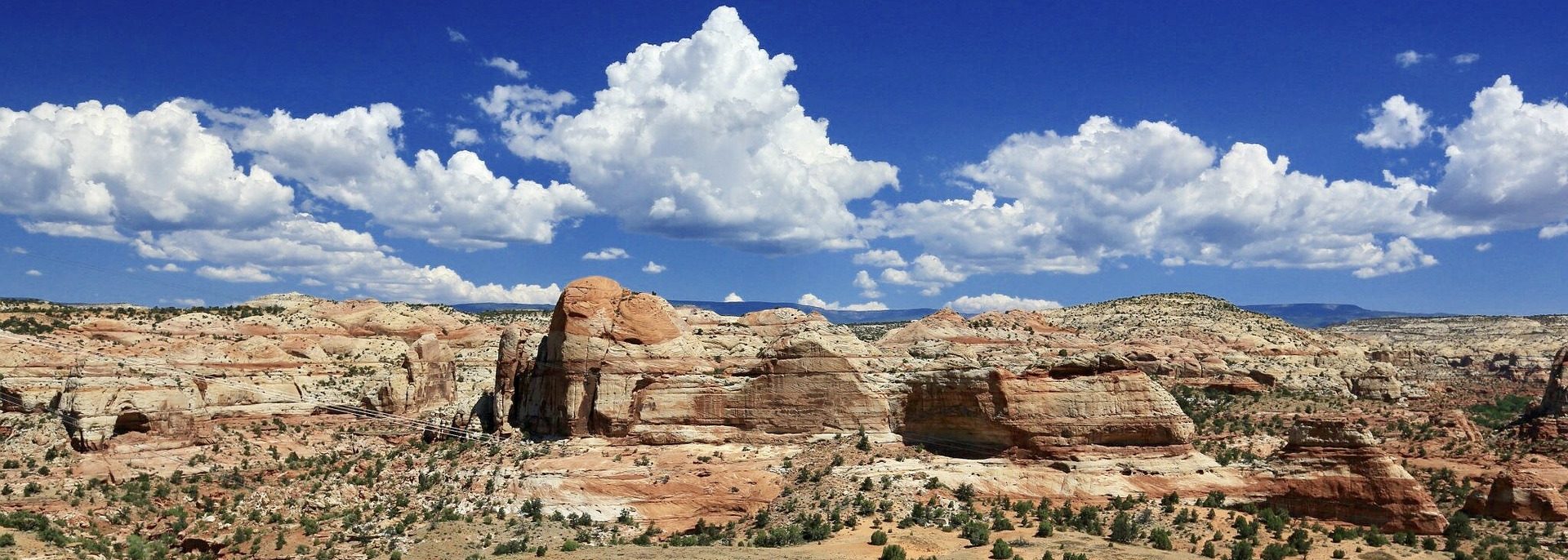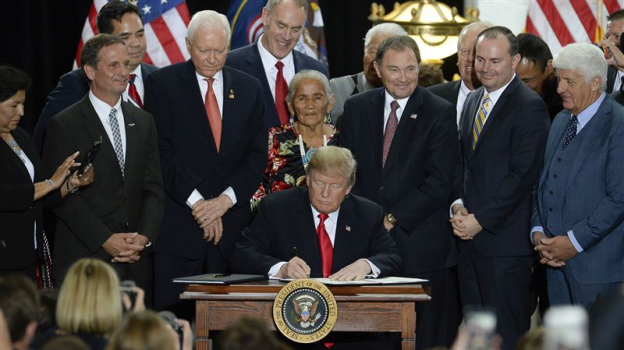Since the establishment of the Antiquities Act there have been many controversies regarding presidential authority over the designation and expansion or reduction of federal land. For example in 1938, President Franklin D. Roosevelt attempted to abolish Castle-Pinkney National Monument, a deteriorating fort in Charleston, South Carolina. The attorney general at the time, Homer Cummings advised that he did not have the authority to take this step but instead, Congress had the sole authority to restrict, reduce or abolish national monuments. (Rosenbaum 2017) Congress did in fact abolish Castle-Pinkney National Monument and it was transferred to the US Army Corps of Engineers, thus exercising its authority.
Another controversy surrounding the Antiquities Act came in 1945. A legal challenge aimed at the Jackson Hole Monument in Wyoming claimed that the monument caused a loss of revenue from taxes and grazing fees. The courts found that “for monuments established under the Antiquities Act, agencies are afforded broad rights to protect the resources of the site, and that the loss of income is not a legal basis to reject a monument designation.” (Vincent 2016, 4).
Congress has the sole Constitutionally given power to alter or reduce the size of a national monument once the President designates the monument. Article 4 Section 3 of the US Constitution states: “The Congress shall have Power to dispose of and make all needful Rules and Regulations respecting the Territory or other Property belonging to the United States.” (U.S. Const. art. 4, § 3) This Constitutionally given authority as well as the limited authority given by the Antiquities Act demonstrates that the President does not have the power to reduce National Monuments. The President has authority to create new national monuments but Congress is the only governing body with the authority to restrict, reduce or divest national monuments or parks.
In addition to infringing upon the freedoms provided to Native Americans, Donald Trump’s reduction of public land is an overreach of his Presidential authority. Trump cites the Antiquities Act of 1908 as giving him the authority to reduce these monuments, which is constitutionally false as well as an overly broad interpretation of the Antiquities Act. The Antiquities Act does not permit the president to rescind any previous designations, but only permits the designation of new monuments.
Disposal of public lands does not fall under President Trump’s authority. The Department of Defense has the ability to dispose of excess military lands under the surplus property process administered by the General Services Administration (Vincent et al). The Secretary of the Interior, Ryan Zinke, does play a role in the withdrawal of public lands. However, he Federal Land Policy and Management Act of 1976 (FLPMA) states “The Secretary shall report his recommendations to the President, together with statements of concurrence or nonconcurrence submitted by the heads of the departments or agencies which administer the lands. The President shall transmit this report to the President of the Senate and the Speaker of the House of Representatives, together with his recommendations for action by the Secretary, or for legislation.” (FLPMA, 1976) While Trump and Zinke play an integral role in the withdrawal of public land, the final decision belongs to Congress.
The Trump administration argues that the Constitution’s grant of executive authority to the president is broad and that this is merely one of the unstated powers encompassed within that broad grant. Robert D. Rosenbaum is an accomplished attorney and the chairman of the Mid-Atlantic Regional Council of the National Parks Conservation Association. Rosenbaum states that “The problem with that argument is that we are not here dealing with any power granted the president under the Constitution, but instead with the management of federal lands. The Constitution’s property clause grants that power not to the president, but exclusively to Congress” (Rosenbaum 2017). Through the Antiquities Act, Congress has given the power to designate national monuments to the president, but Congress retains the sole authority to revoke or reduce national monuments.

https://rtfitch.files.wordpress.com/2017/08/letskillthemall.jpg
The Trump administration blames Congress for an inability to provide valuable legislation efficiently. While this issue has been brought into the mainstream by the media during Trump’s presidency, it is not unheard of for a president to attempt to legislate without the consent of Congress. For example, the Obama administration prided itself in being able to craft new policies without Congress “Branding its unilateral efforts ‘We Can’t Wait,’ a slogan that aides said Mr. Obama coined at that strategy meeting, the White House has rolled out dozens of new policies — on creating jobs for veterans, preventing drug shortages, raising fuel economy standards, curbing domestic violence and more. Each time, Mr. Obama has emphasized the fact that he is bypassing lawmakers.” (Savage 2012). If a president is able to bypass Congress in order to make a law, the system of checks and balances fails, which could ultimately lead to a government nearing a dictatorship with the president holding absolute power.
If we accept the United States Constitution as being ethically correct, then Trump’s violation of the checks and balances presented in the Constitution should be viewed as unethical. An inherent view of ethics understands that adhering to the checks and balances as presented in the Constitution is ethical because complying with one’s duty has inherent moral value in so long as the duty itself is good. Trump was elected as president with the expectation that he would fulfill the duties of the presidency. One of the primary duties of the president is to up defend and protect the United States Constitution. Since adhering to checks and balances are an integral part of the Constitution, Trump must respect the checks and balances between the three branches of the United States government. The power to reduce national monuments belongs to Congress. Therefore, Trump’s reduction of Bears Ears and Grand Staircase-Escalante National Monuments fails to meet the standards of inherent ethics.

